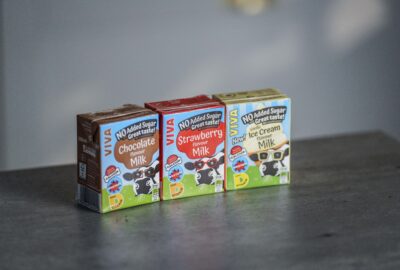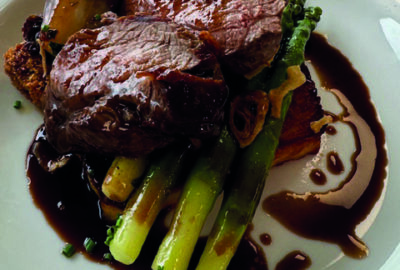Receiving a Food For Life Silver Award from the Soil Association, reducing food wastage and introducing an electronic ordering system are just some recent successes at the Royal Brompton Hospital in Chelsea, London.
Every week the catering department provides meals for private and NHS patients, hospitality (functions) and what is referred to as the ‘retail department’ comprising one restaurant and two cafés. On average, 150 to 200 meals a day are served to patients and 600 for staff and visitors. Nuno Matias, catering services manager of the hospital says: “People tend to think of hospital food as not very appetising so we’re trying to change that by creating imaginative dishes to show it’s possible to have great food in a hospital.”
One of Nuno’s objectives was to achieve the Food For Life Silver Award. “I’d had experience of the Bronze Award at my previous hospital, so I knew what it entailed. I have a great team and they help me considerably,” he says. To qualify for the Award, the hospital had to meet stringent criteria including 75% minimum of ‘fresh cook’ on site; all meat had to be Red Tractor and they needed to use a minimum of 6% organic produce. The hospital managed to attain the Award in just one year. Nuno says, “For me, it is one of our greatest accomplishments. We know we are serving healthy food and it is great to have that recognised. It makes us feel proud of the work we do.”
Over 80% of food is freshly cooked on site, working closely with the dietetic team. Nuno says, “Our menu in the restaurant and cafés is the same as the patient catering. All menus are checked by the dieticians and each dish has a nutritional analysis. They will advise us if we need to adjust something. We’re in contact with them daily and have regular meetings.”
Menus are changed every six months, taking on board patient feedback.
“If a patient asks for a certain dish, we work with the dietician to see if it’s possible,” adds Nuno. The team work hard
to deliver an international menu, including jerk chicken, chicken chow mein, Italian meatballs, British hotpots and Greek shawarma on pitta bread, although fish and chips is always popular on a Friday. “Our chefs come from all over the world and they contribute recipes,” he says. “We try to celebrate every culture.” For Black History Month, a special African themed menu was introduced, while Pride Day was marked with rainbow cakes.
A new ‘Picnic’ electronic ordering system helps chefs by giving them the patient meal numbers early in the morning. Nuno explains “Instead of a paper menu, patients order via a tablet where there are pictures of dishes so patients can choose by looking at the picture. The system also has a ‘Foodchecker’ facility – each dish has a barcode which enables allergen and nutritional information to be displayed by scanning the barcode with a smartphone.”
The hospital has managed to reduce the amount of food waste by one tonne in the past year by using the ‘Leanpath’ system. Nuno says, “It helps us to reduce waste. It is connected to our computers and checks how much waste we have daily so we can reduce our quantities if needed.”


